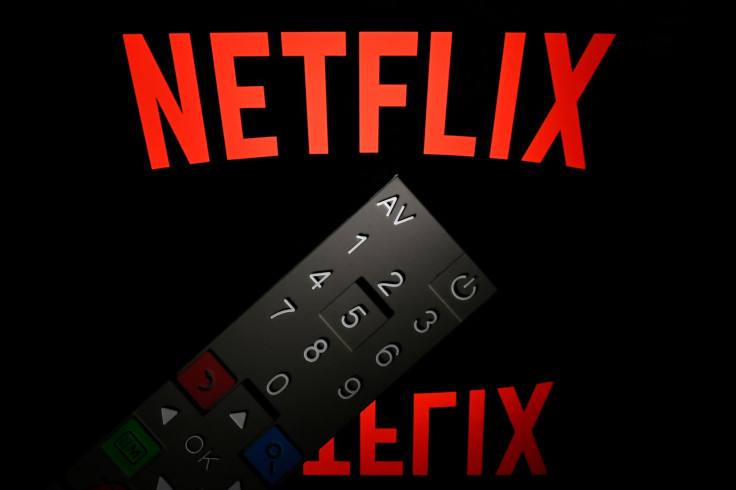Netflix Is Killing A Ton Of Its Own Shows. What's Going On?

February was a rough month for Netflix (NASDAQ:NFLX) original series. Friends From Collegewon't be coming back for a third season, and Netflix also axed two of its popular Marvel original series, Jessica Jones and The Punisher. This marks the end of the Marvel era at Netflix -- the popular Daredevil was canceled late last year over fan protestations. These were popular shows, and fans (including rapper Eminem, apparently) are up in arms. Why would Netflix kill off shows that its own viewers loved?
We've seen this before. Netflix is no stranger to pulling the plug on its own hits. The aforementioned Daredevil cancellation led to fan campaigns to save the show. And Netflix dumped American Vandal last year in a move that stunned fans -- though close observers could see why it happened. Netflix's latest cancellation spree has a similar explanation, with a few fun wrinkles thrown in.
The math behind Netflix's cancellation spree
To understand why Netflix is cancelling some of its own best shows, we need to remember why Netflix makes original content in the first place.
Netflix's original content helps differentiate the service and gives fans a reason to choose Netflix and its exclusives over competing services like AT&T's (NYSE:T) HBO -- but that's not the main goal here. Netflix, it's worth remembering, has far more subscribers than any of its rivals, and it does not seem to need much in the way of differentiating content.
Netflix calculates its profits the same way that everyone else does -- revenue minus costs -- and a key goal of the company's original content strategy is to reduce its future costs. Though it's expensive to develop content, Netflix will save money in the long run because it will become less reliant on pricey licensed content.
Or, at least, that's how it would work if Netflix made its original series entirely on its own. But that's not the case with all of Netflix's series. Some Netflix "originals" are made in cooperation with outside studios. As Netflix's original content strategy matures, the company is looking to keep more and more content production in-house, and it's killing off shows that cost it more, like American Vandal.
Cost-benefit trade-offs matter, too, of course. The more popular a show is, the more likely it could survive despite higher costs. But the presence of outside stakeholders is a big negative, especially given that Netflix generally pays a fixed price for its original content (meaning that less-popular series don't get any cheaper just because people aren't watching).
Higher stakes and larger scales
The latest cancellations were triggered by the same reasoning that caused the demise of American Vandal, though there's another detail that makes this move particularly understandable. Netflix's Marvel shows were produced by Marvel Studios and ABC Television, which are owned by Disney (NYSE:DIS), a company that will soon release its own on-demand streaming service to compete with Netflix. Netflix would prefer to keep more of its own money and give less to a massive soon-to-be-rival, so this move makes plenty of sense -- even if fans wish that it didn't.
It's also interesting to see the accelerating pace of these cancellations. We can't say that we weren't warned: Chief Content Officer Ted Sarandos is on the record as saying that the markup on content from outside studios is "30% to 50%." It is clear that Netflix wants a higher percentage of its content to come from its own studios.
The cancellations that Netflix needs to execute in order to make this happen are coming fast and furious now. American Vandal's cancellation was a surprise, but the cancellation of these longer-tenured and arguably iconic Netflix originals is a bigger deal and a better demonstration of just how committed Netflix is to keeping its originals under its own control.
In-house integration and the future of streaming
Netflix's strategy makes financial sense, and it suggests that tribalism will dominate the future of streaming. For example, Disney's Disney+ service will be stocked with content produced by Disney. AT&T's WarnerMedia is creating a streaming service for its studios, too.
Some wondered if American Vandal would land on CBS All Access, given that the production company Netflix jettisoned there was owned by CBS. With the Marvel shows, there's reason for similar speculation -- in an open letter to fans, Marvel Television producer Jeph Loeb hinted strongly that he expected the Marvel shows to be revived elsewhere. If Netflix's model is the way of the future, the shows will be revived on Disney's upcoming Disney+ service or Hulu (also majority-owned by Disney) if they are revived at all.
This article originally appeared in The Motley Fool.
Stephen Lovely owns shares of Netflix. The Motley Fool owns shares of and recommends Netflix and Walt Disney. The Motley Fool is short shares of CBS. The Motley Fool has a disclosure policy.





















